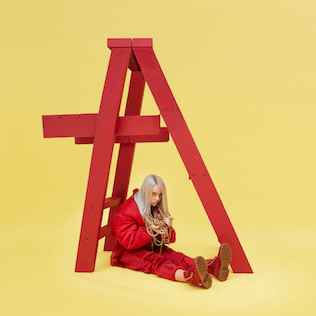When exploring music releases, you may have come across terms like EP, LP, album, and mixtape. But what exactly is an EP, and how does it differ from an album?
In today's music industry, the definition of an EP has evolved beyond its original vinyl record meaning. This article will break down the differences in an easy-to-understand way, provide insights from real music fans, and explore how streaming has reshaped the relevance of these categories.
In This Article
01 What Does EP Mean in Music?
EP stands for Extended Play — a music release that’s longer than a single but shorter than a full album. Typically, an EP includes 4 to 6 tracks and runs about 15 to 30 minutes. It's a popular format for both emerging and established artists to share new music without the time and resource investment of a full-length album.Even The Beatles famously used the EP format with their 1967 release "Magical Mystery Tour".
Key Benefits of Releasing an EP
- Faster release cycle: EPs help artists stay relevant by releasing music more frequently.
- Creative freedom: Artists can experiment with new sounds or styles without committing to a full album.
- Fan engagement: Releasing an EP keeps listeners interested between major projects.
- Introductory format: For new artists, EPs serve as a compact showcase to attract fans and industry attention.
EP vs Album vs Single
| Format | Track Count | Duration | Purpose |
|---|---|---|---|
| Single | 1–2 tracks | Under 10 mins | Promote a lead song |
| EP | 4–6 tracks | 15–30 mins | Experiment or bridge releases |
| Album | 8-15+ | 30-60+ minutes | Full artistic statement |
Whether testing a new genre, collaborating with others, or simply staying visible in a fast-paced industry, EPs offer a flexible and impactful way to share music — digitally or physically.
02 What Does EP Mean in the Music Industry Today?
In today’s fast-paced digital music landscape, an EP (Extended Play) is more than just a release format—it’s a powerful tool for visibility, experimentation, and audience engagement. But what does EP mean in music, exactly?
An EP traditionally refers to a musical project that includes more tracks than a single, but fewer than a full-length album—usually 4 to 6 songs. In the modern music industry, EPs have evolved to meet the demands of streaming platforms like Spotify and Apple Music, where shorter attention spans and a constant craving for fresh content shape how music is consumed.

While some listeners may see EPs as less “official” than albums, many are thoughtfully crafted, theme-driven collections that introduce new creative directions. Even major acts—from The Weeknd to indie breakout stars—use EPs to test new sounds, engage fans, and build momentum between larger releases.
- Billie Eilish – Don't Smile at Me (9 songs)
- Gracie Abrams – This Is What It Feels Like (12 songs)
- Dream Theater – A Change of Seasons (57 minutes, 1 song!)
Why EPs Thrive in the Streaming Era
- Frequent Releases: Unlike albums that can take years to complete, EPs allow artists to release music more consistently and stay top-of-mind.
- Lower Production Pressure: Releasing an EP costs less time and money, making it ideal for indie musicians or those experimenting with new sounds.
- Streaming Compatibility: On Spotify, EPs are categorized under “Singles and EPs,” signaling a more casual yet cohesive project—ideal for catching attention without overwhelming listeners.
- Algorithm Boost: Regular EP drops help artists appear more frequently in playlists and discovery feeds, which is crucial for growth in the streaming-first ecosystem.
- Flexible Strategy: Artists can later merge EP tracks into a full album, maximizing reach without starting from scratch.
03 EP vs LP: What’s the Difference?
Now that we’ve explored what an EP means in music, let’s break down how it compares to an LP—or a full-length album.
What Is an LP?
An LP (Long Play), or simply a full album, usually features 10 to 12 or more tracks, providing a comprehensive artistic statement. LPs are typically pressed on 12-inch vinyl and span 30 minutes to over an hour. They require more time, budget, and conceptual planning, often representing a creative milestone in an artist’s career.
Key Differences Between EP and LP:
- Track Count & Duration: EPs are shorter (4–7 tracks), while LPs feature 10+ tracks.
- Purpose: EPs are often used for experimentation or teaser content; LPs deliver a full artistic vision.
- Production Timeline: EPs are quicker and cheaper to produce, ideal for frequent digital releases.
- Release Strategy: EPs help artists stay active on streaming platforms; LPs are milestone projects with deeper narrative or thematic scope.
04 Creating Your Own EP in the AI Era – Try LitMusic
In today’s fast-moving digital music landscape, artists no longer need to spend months crafting a full-length album to stay relevant. Many independent musicians are now embracing EPs as a flexible, low-cost way to experiment, build a fanbase, and release music more frequently.
This is where AI tools like LitMusic come in. LitMusic is an AI-powered music generator designed to help creators, whether beginners or pros, compose music quickly—perfect for building out a new EP without hiring a full studio team.
Listen to music created with LitMusic

Key Features
- Generate original, royalty-free instrumentals by mood, genre, or prompt
- Create melodies instantly with a few keywords
- Export your track for commercial use, including EP releases on streaming platforms
- Save time and cost while retaining full creative control
Whether you're working on your debut EP or experimenting with new sounds between albums, LitMusic gives you the creative jumpstart you need. Try LitMusic now and start producing your own EP-worthy tracks
Conclusion
In the music industry, EP stands for Extended Play, a format that bridges the gap between a single and a full-length album (LP). Whether you're an emerging artist or a seasoned pro, releasing an EP can help you experiment with sound, maintain audience engagement, and build momentum without committing to a full album.
Try Creating Your Own EP-Ready Music with LitMusic
Looking to create original melodies or complete tracks for your next EP? LitMusic is an AI-powered music generator that helps artists craft royalty-free, commercial-use music in various styles and moods—without needing advanced music theory skills.
Whether you're working on lo-fi beats, pop hooks, or cinematic scores, LitMusic lets you compose with just a few prompts.
Try LitMusic now and bring your next EP to life effortlessly!


















